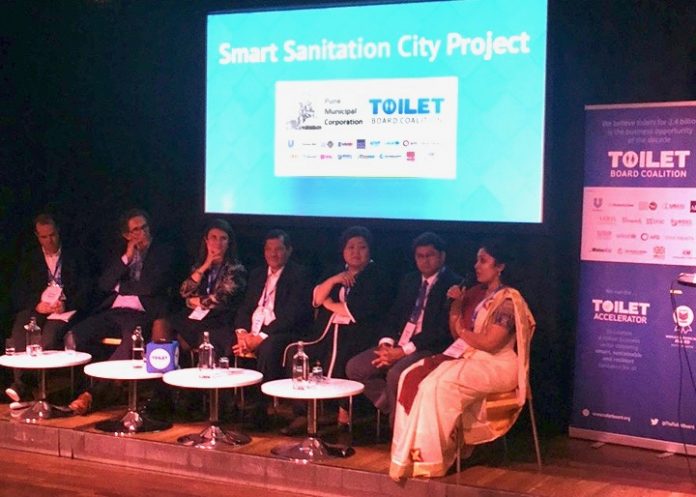The Toilet Board Coalition and Pune Municipal Corporation have announced a new collaboration towards making Pune, India, the world’s first smart sanitation city.
The Toilet Board Coalition, a business led public-private partnership supporting business solutions and innovation within the sanitation sector, and Pune’s governing body, the Pune Municipal Corporation, confirmed that they will work together to develop smart sustainable and resilient sanitation systems, delivered through the market in Pune.
“Our own Digitisation of Sanitation report found significant potential for new technology applications both to drive efficiencies in sanitation systems, but also to drive new value creation through the monetising of health data that could be captured throughout the sanitation value chain,” said Cheryl Hicks, Executive Director of the Toilet Board Coalition. “This project will bring these new business solutions to life in Pune.”
Launching in January 2018, the project is being developed into three main work streams in Pune: community toilets, with a focus on optimising usage at scale and behaviour change; waste management and resource recovery; and digital, exploring data use cases for the use of sensors within the sanitation system.
As part of Indian Prime Minister Modi’s Smart Cities campaign, there is a focus on efficiency, improved public services, goods and spaces, and modernisation, all driven by new citizen intelligence derived from data captured throughout the city. In December 2016, Pune declared itself an official open defecation-free city, and has since been selected as one of Modi’s ‘Smart Cities’.
“Sanitation solutions that improve lives and make our citizens proud is at the centre of our project–working with global and local businesses and leveraging new smart technologies,” said Prerna Deshbhratar, Additional Commissioner, Pune Municipal Corporation. “These solutions we are exploring together will be simple, affordable and accessible.”
With the Indian Government’s Swachh Bharat sanitation campaign aiming to eradicate open defecation by 2019, a toilet construction project is being rolled out around the country. However, long-term sustainability and resilience of the campaign will be pinned on putting self-sustaining economic solutions in place now.








